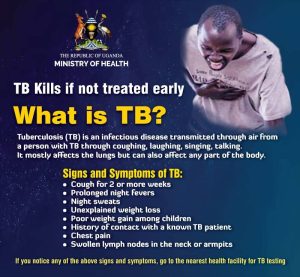As Uganda joins the rest of the world to commemorate World Tuberculosis (TB) day on 24th March 2023, at Butaleja Boma grounds, it is imperative to remember and draw lessons from the African Black Angels who stepped forward to treat thousands of patients with TB.
The Black Angels were African American nurses who risked their lives to care for the poorest 1,800 souls languishing in wards waiting to die of tuberculosis, when there was no cure at the time and place where white nurses refused because of the segregation of the Africans during the TB plague that hit America’s New York from 1939 to 1941.
Unfortunately, the role of the African American nurses and their contributions have been unrecognized, yet they sacrificed their lives for others and their determination to end the disease, was pivotal in the discovery of the bacterium that causes TB, paving the way for diagnosis and cure.
As this year’s theme for World TB Day says, “Yes, we can end TB,” the commemoration of World TB Day ought to be an avenue to resurrect the spirit of the African black Angels who forgot all sorts of discrimination, fear, and money rewards and focused on treating the disease to save a people.
No one should stigmatize the victims of TD because it’s not helpful in any way; ensure to support families and community members with TB and other related diseases to complete their treatment; invest time, skills, and energy in the families to prevent the further spread of TB.
According to the ministry of health, TB and leprosy services are free at government and accredited private health facilities in all parts of the country.
Facts about Tuberculosis
It’s an infectious disease caused by the Mycobacterium tuberculosis (MTB) bacteria, and it generally affects the lungs, but it can also affect other parts of the body.
Each person who is not diagnosed and treated for TB spreads the disease to 10–15 people per year.
TB is four times more common in men than in women, and approximately 15 of every 100 cases of TB in Uganda are children aged less than 14 years.
TB is one of the oldest diseases in the history of mankind, as evidence of tubercular decay dates all the way back to Egyptian mummies from 3000–2400 BCE.
Tuberculosis is a global pandemic, and about 90 percent of people infected with it don’t show any symptoms.
Today, TB causes more deaths than either malaria or HIV/AIDS, among others.


